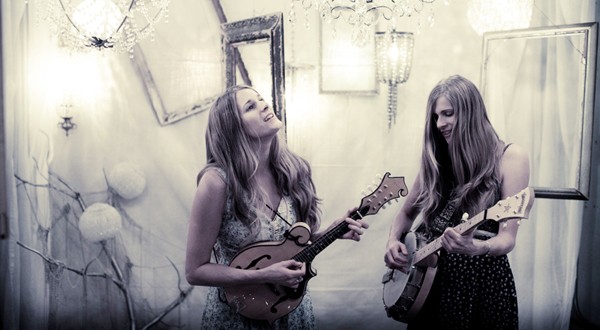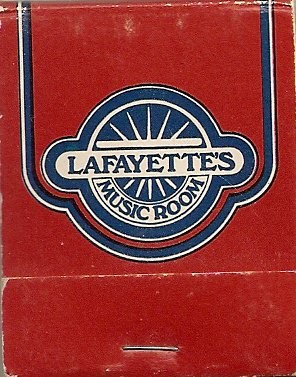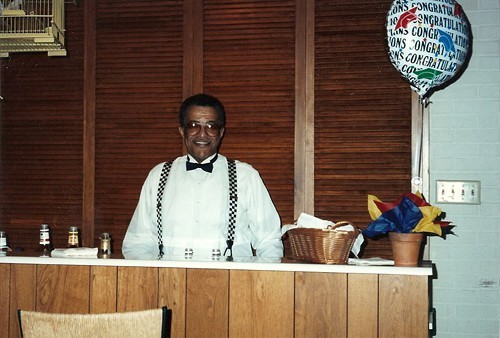The first American Mardi Gras was celebrated in 1703 in what is now Mobile. The first krewe was the Masque de la Mobile. By 1718, New Orleans was a thing, and by the ’30s (the 1730s), they were doing Mardi Gras too. With a vengeance. In 1875, Louisiana Governor Henry Warmoth signed the Mardi Gras Act, designating Fat Tuesday as a legal holiday.
Somewhere in there the first pot of gumbo was made, and by the Great Depression, the Martin brothers threw some potatoes and roast beef gravy on French bread, and the first po’boys were served to New Orleans streetcar workers on strike.
Just as much as New Orleans is le centre Americain for all things Mardi Gras, its identity is also inseparable from its distinct cuisine.
Mardi Gras is just around the corner — Mardi, February 9th — and area restaurants are offering some traditional New Orleans dishes and signature drinks to save you the six- (or five or four-) hour trip. (And running around like an amateur.)
Chef Kelly English is synonymous with Louisiana in these parts — he’s a native — and if Mardi Gras means traditional New Orleans cuisine, it’s a party all year-round at his restaurant the Second Line. His menu of po’boys, including the O.G., short for original gangsta, short for the Martin brothers concoction of French fries and gravy; chicken and andouille gumbo; and barbecue shrimp will make you think you need to cross the neutral ground to go make some groceries.
For the big holiday, English will be offering drink specials as well as a bread pudding baby lottery, meaning one dish of bread pudding will have a king cake baby, and the lucky diner will receive dinner for two.
The Second Line, 2144 Monroe,
590-2829
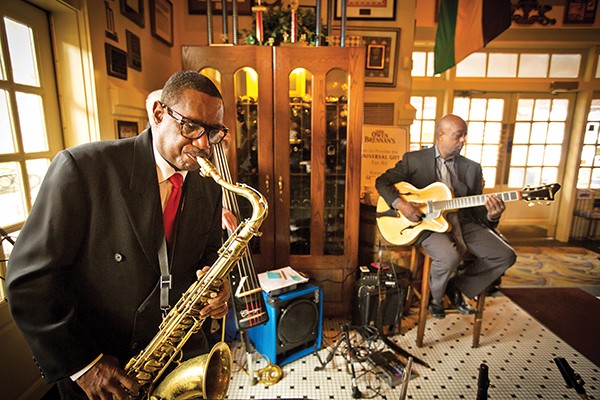 Justin Fox Burks
Justin Fox Burks
Owen Brennan’s
Owen Brennan’s was one of Memphis’ original New Orleans ambassadors, taking home Best of trophies year after year. They’ll be Mardi Gras-ing it up this year with a celebratory menu of $5 small plates and drink specials. Their holiday menu will offer crawfish beignets with crawfish tails, andouille sausage, and tasso ham fried in a beignet and served with sriracha tartar sauce; Cajun calamari served with agrodolce and remoulade sauces; king cake; hurricanes; Mardi Gras Ritas; and Mardi Gras Mosas. They’ll also turn it up a notch with jazz music and a bead throw from the indoor balcony.
Owen Brennan’s Restaurant,
6150 Poplar, 761-0990
Lafayette’s is the new old kid on the block. After 38 years of shuttered windows, the Midtown music fixture reopened with a balcony that models those characteristic of the Big Easy. This week, from Monday, February 8th through Saturday, February 13th, chef Jody Moyt will serve up Carnival food specials such as red beans and rice for $4 a cup; muffalettas for $12 served on authentic Gambino bread shipped in from NOLA with mortadella, salami, homemade olive relish, and roasted red peppers; and king cake, either by the slice or whole — yes, the whole ones will have babies. “We’re the Mardi Gras spot in Overton Square. We’ve got the double-decker balcony out front and a mezzanine inside. We’ll have a horn band that will get a train going through the restaurant. It will be a big party. We’ll be as close to Mardi Gras as you can get without going down South,” Moyt says.
Lafayette’s Music Room, 2119 Madison, 207-5097
Chef Max Hussey at eighty3 Food & Drink at the Madison Hotel downtown says he loves Cajun cuisine and has been recognized with several awards for his gumbo. The New Orleans cuisine enthusiast added a Mardi Gras special to his menu for a limited time. For $15, revellers can get a crawfish po’boy and a cup of traditional New Orleans-style gumbo, made with clam and seafood stock, crawfish, shrimp, okra, scallops, lobster, rice, and creole seasonings. The special menu will run from Friday, February 5th to Tuesday, February 9th.
eighty3 Food & Drink, 83 Madison, 333-1224
It’s pretty much always Fat Tuesday at the Bayou. “Our menu is already suited for it,” owner Bill Baker says. This year on the big day they’ll have a crawfish boil as well as king cake, and the New Orleans-inspirited Mighty Souls Brass Band will carry you away to Frenchmen on their tuba, trombone, sax, et al. “It will start to pick up mid-afternoon, and by evening it will get crazy. We’ll have a bunch of beads. Beads will get thrown. Laissez le bon temps roulez,” Baker says.
The Bayou, 2094 Madison, 278-8626

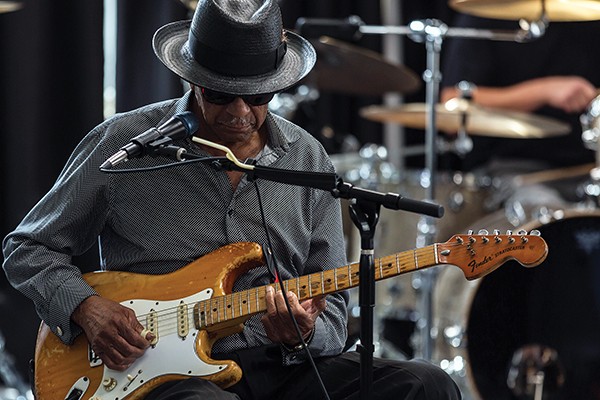 Dan Wireman
Dan Wireman 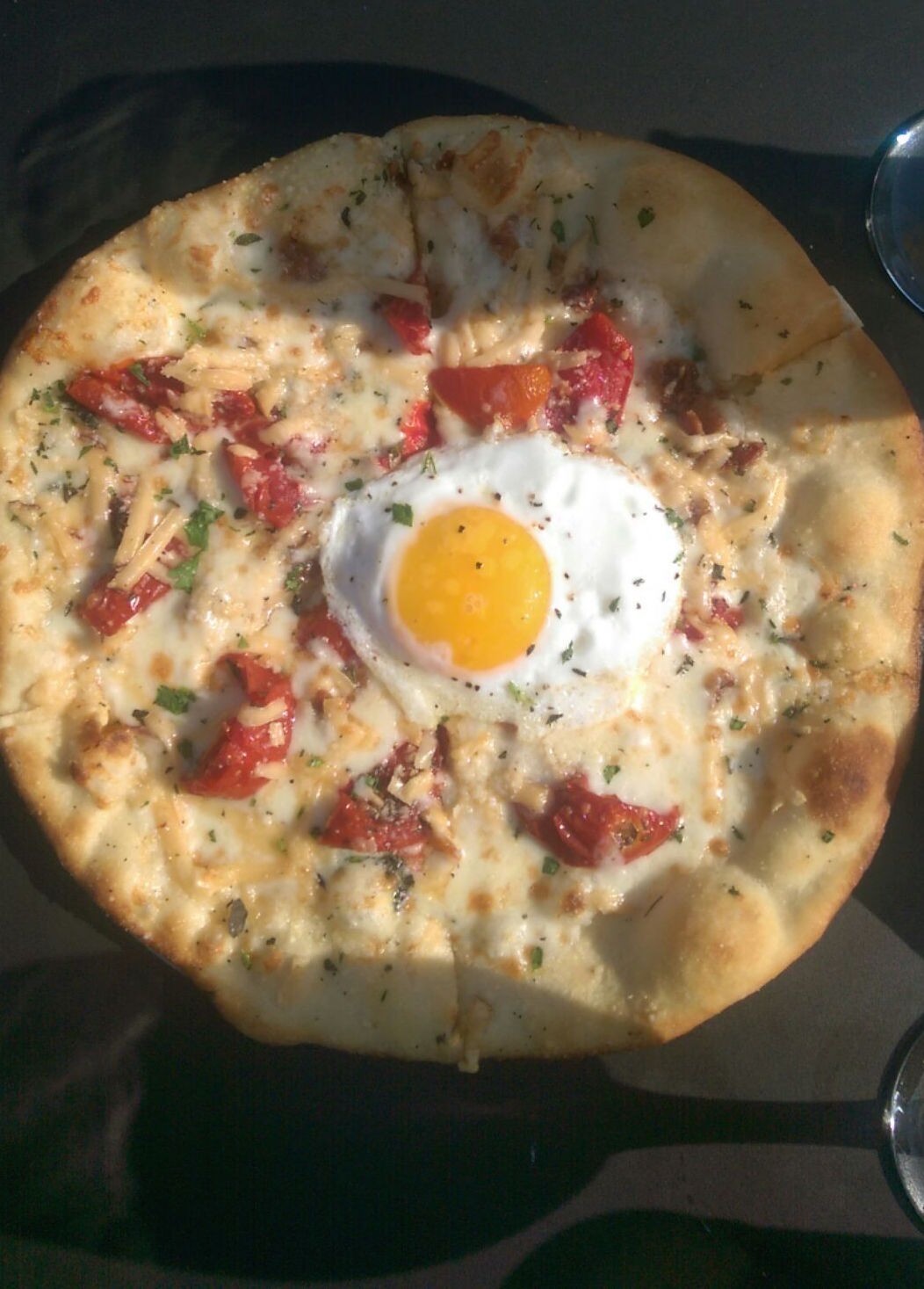
 Justin Fox Burks
Justin Fox Burks 

